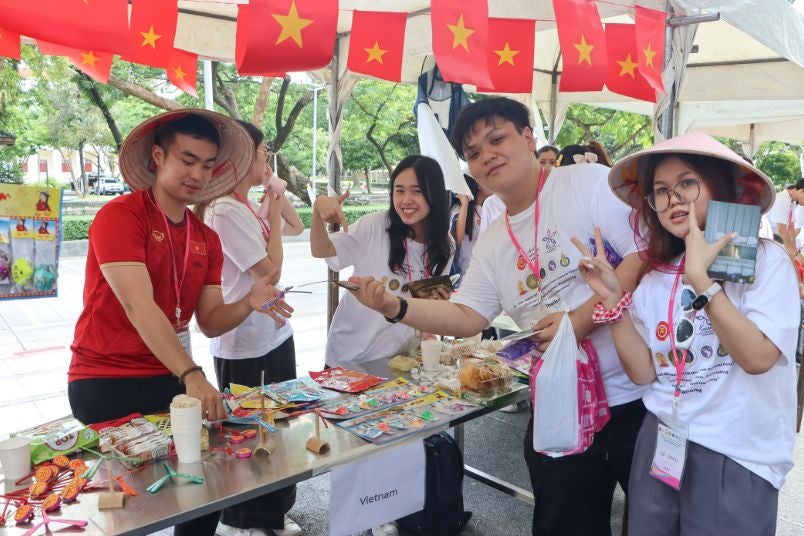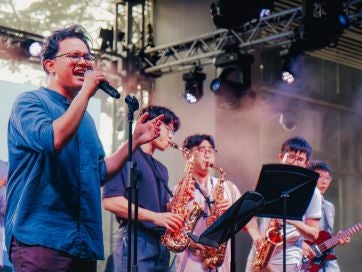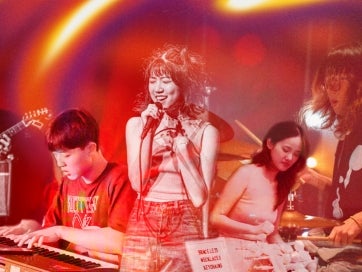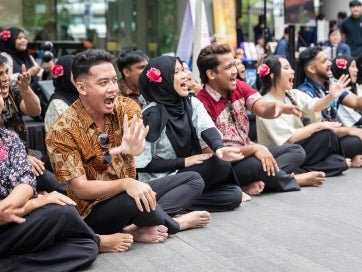Four undergraduates represented NUS at this year’s 20th ASEAN and 10th ASEAN+3 Youth Cultural Forum (AYCF). Held in Bangkok, the students explored traditional arts and culture through performance, dialogue, and connection.
Taking place from 22-27 June 2025, AYCF brought together student delegates from across ASEAN, China, Japan, and Korea. Made possible by co-hosts Chulalongkorn University, Burapha University, Chiang Mai University, Mahidol University and Prince of Songkla University, the forum served to enable cross-cultural exchange and collaboration, supported by the ASEAN University Network Secretariat.
This year’s theme, Cultural Roots and Rhythms: Flourishing Together in Unity and Harmony, invited participants to reflect on their roles in preserving, promoting, and reimagining the region’s cultural heritage.
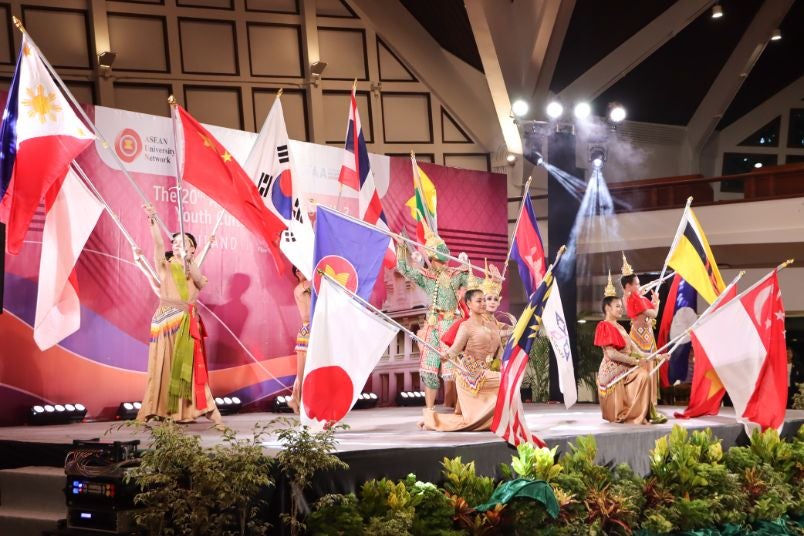
‘Performance by Thai host universities that featured the flags from all participating countries.
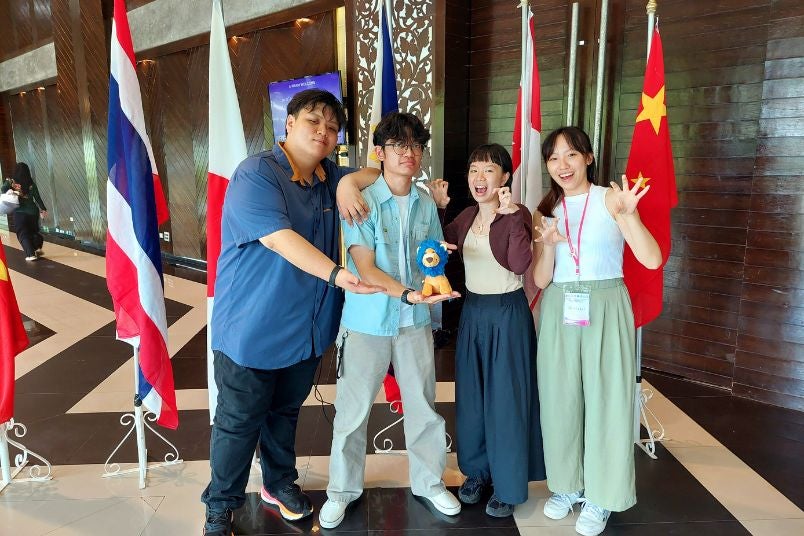
Representing NUS were students with backgrounds in theatre, music and dance. From left to right: Chia Loke Yang Luke (Y1, Law), Kashfy Ilxilim Bin Zulkarna’in (Y3, CDE), Lim Kai Ling (Y4, FASS), and Toh Lyn Li Christabel (Y3, FASS).
Reimagining culture on stage
During the opening ceremony, national performances took centre stage — with each country offering a unique interpretation of their cultural identity. While some celebrated traditional art forms, others blended heritage with modern pop culture.
Choosing a distinctly different approach, NUS students presented an original interdisciplinary piece that reflected on the ever-evolving nature of Singapore — a recurring trait that continues to shape our identity as a young nation. Blending elements of dance, music and theatre, their performance traced Singapore’s development over the years, interwoven with aural anecdotes of everyday life that many Singaporeans can relate to, even in the absence of a singular unifying cultural background.
“The influx of people from different places, diverse cultures and ongoing development truly represents Singapore, which formed the baseline of our creation. Many participants found our piece interesting and thought provoking as they found the mixture of arts with nation development extremely innovative,” said Lim Kai Ling, director and scriptwriter. Kai Ling is also a NUS Performing & Visual Arts Scholarship (Mid Term) recipient for AY25/26.
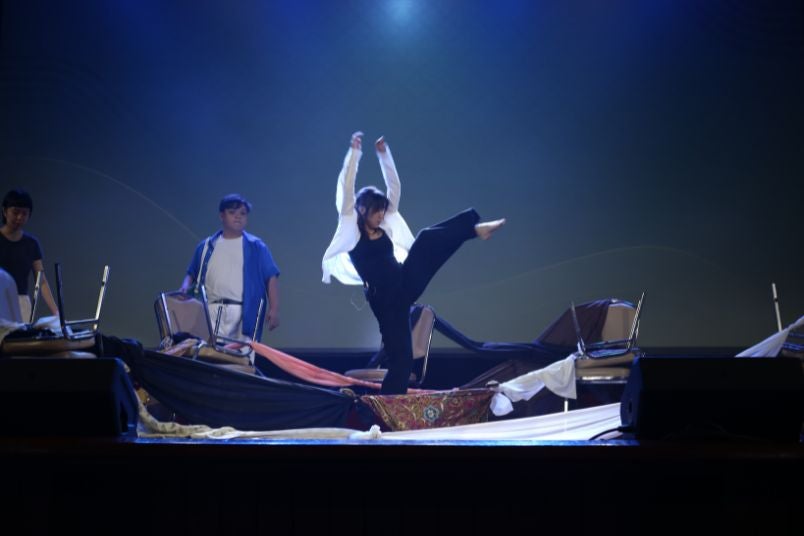
Performance by NUS Students during rehearsals for the opening ceremony
Marketplace of culture and curiosity
Another key event of the forum was the Cultural Bazaar, which featured booths from participating universities. Through traditional games, crafts and food, participants mingled and struck up conversations — often sparked by curiosity around the similarities and differences between various ASEAN cultures and their origins.
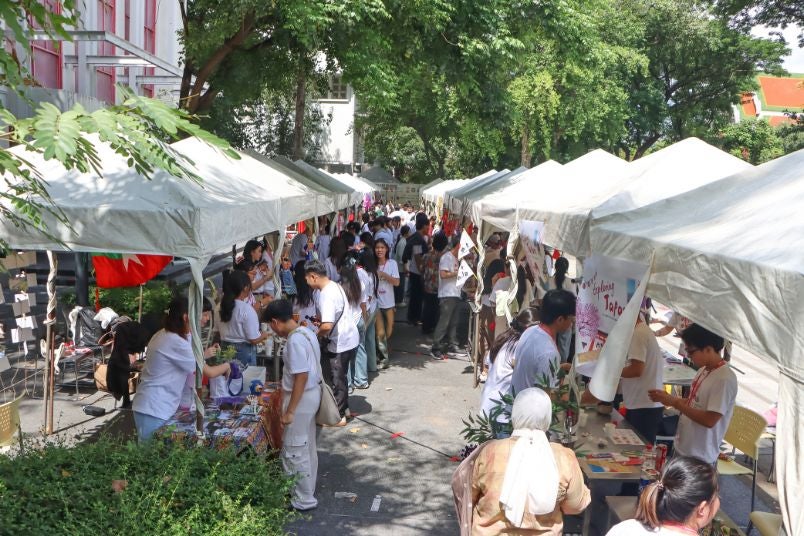
Cultural Bazaar held at Chulalongkorn University .
The host universities also organised traditional Thai craft, dance, and music workshops, introducing delegates to the intricate artistic styles of Thailand’s four main regions: North, Northeastern, Central, and South.
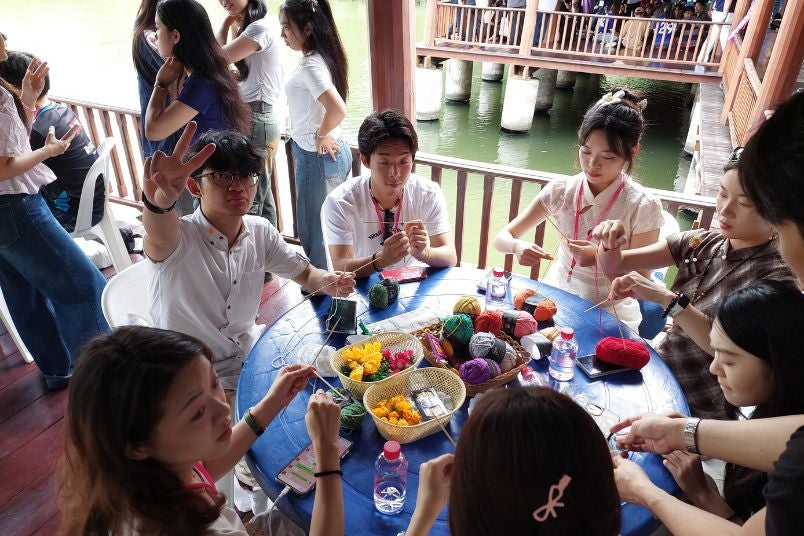
NUS student Kashfy Ilxilim Bin Zulkarna’in, along with other participants, engaging in Thai handicraft from the Northern region .
Culture as a part of everyday life
Overall, the experience was both fulfilling and eye-opening. The forum gave delegates the space to connect meaningfully through organic conversations and to express their identities through art. These encounters broadened our perspectives and continue to inspire the NUS team to carry these conversations forward — fostering a more inclusive environment on campus and within our communities.
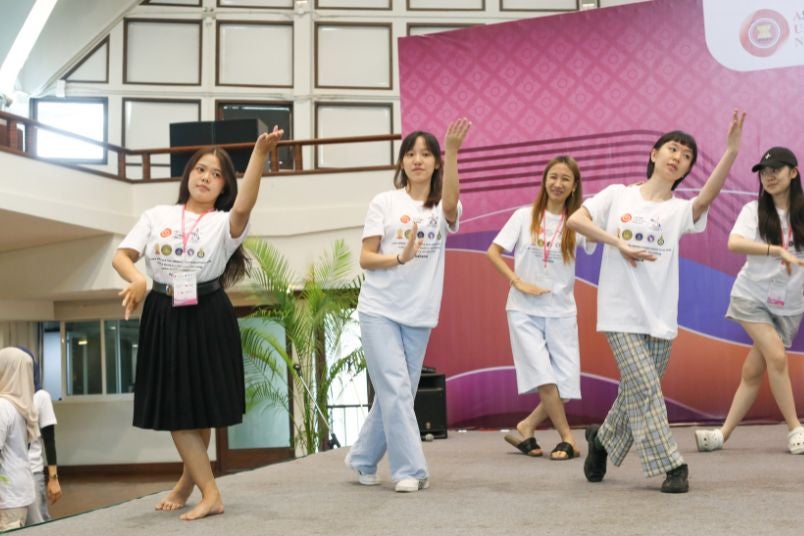
NUS students Toh Lyn Li Christabel (2nd from left) and Lim Kai Ling (2nd from right), learning Thai traditional dance originating from the Northeastern region, led by Thai student representatives.
One of the student representatives, Kashfy Ilxilim Bin Zulkarna’in, who co-founded STUDYO, a live music and open mic community for all musicians across NUS appreciated the exposure.
“Throughout the trip, we were exposed to a plethora of cultures - not just across different countries, but from different regions of Thailand itself. Coming from a country that prides itself on multiculturalism, I wish to be able to give a platform to everyone to showcase their works, reflecting not only their talents but also their identity,” he said.
Share:
Contributor
Office of Student Affairs


